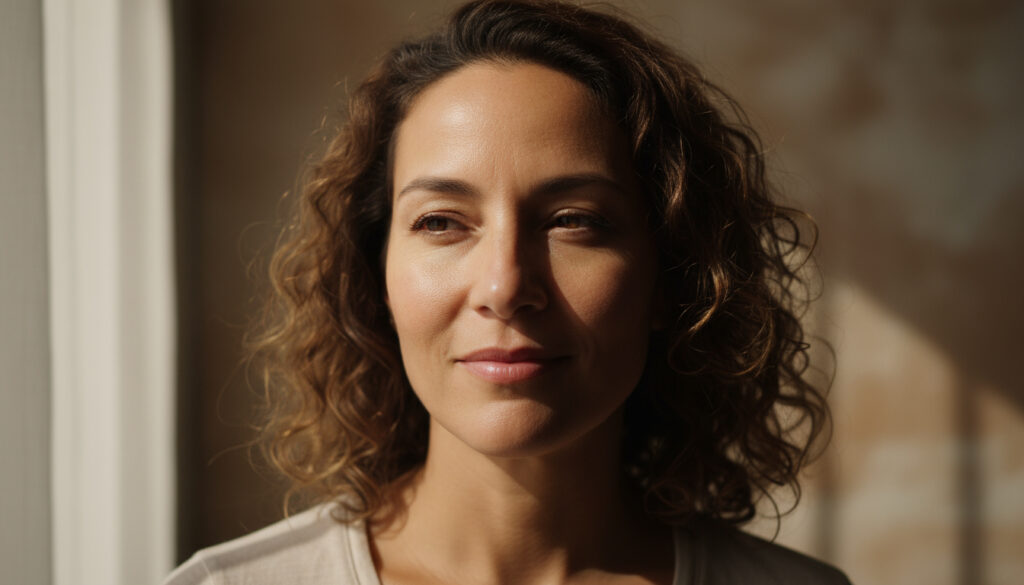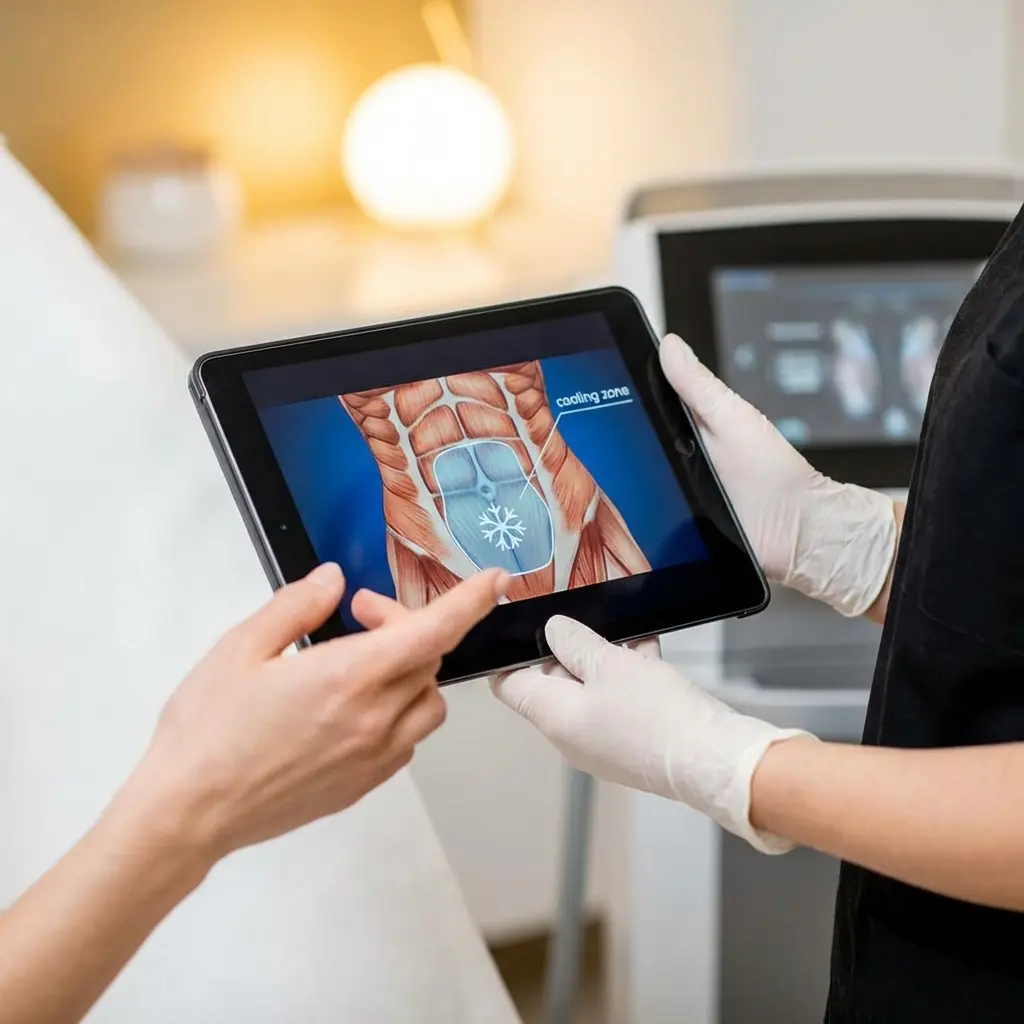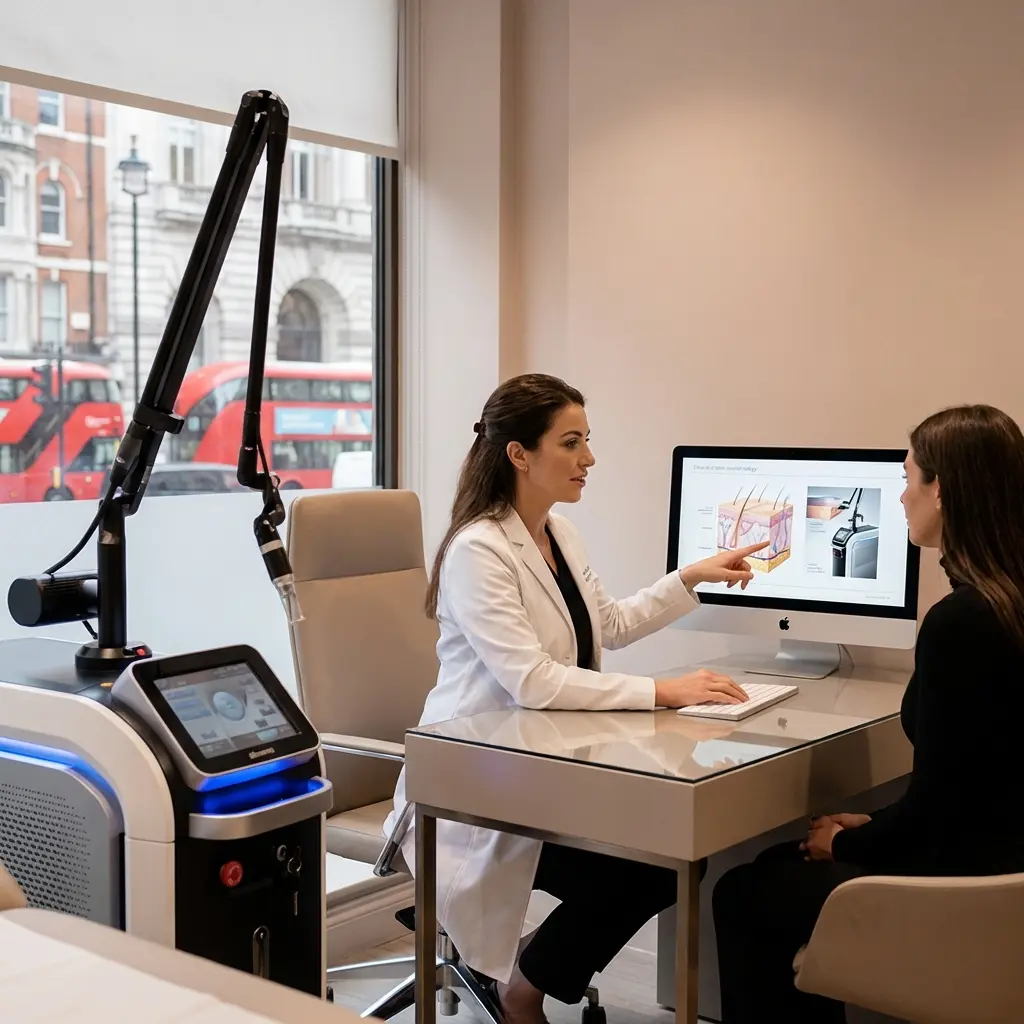TL;DR: Polynucleotide treatments use purified DNA fragments to trigger your skin’s natural regeneration, increasing collagen production by 47% in 23 days. Unlike fillers that add volume, polynucleotides activate cellular repair for lasting improvements in texture, elasticity, and hydration.
Polynucleotides deliver measurable skin regeneration through cellular activation:
- Stimulate 47% collagen increase and 52% epidermis thickening in 23 days
- Treat under-eye areas, dark circles, crepey skin, acne scars, and enlarged pores
- Require 3 sessions spaced 4 weeks apart, with results lasting 6-12 months
- Work by activating fibroblast receptors to trigger natural healing response
- Cost £250-£500 per session in the UK
What Are Polynucleotide Treatments
Your skin doesn’t need more filler. It needs regeneration.
Polynucleotides are purified DNA fragments derived from salmon or trout. They trigger specific receptors on fibroblast cells, which prompts a healing response that results in measurable skin regeneration.
The mechanism works at the cellular level. Instead of filling space temporarily, polynucleotides activate your skin’s natural repair mechanisms to rebuild collagen, improve hydration, and restore elasticity from within.
A systematic review published in 2024 analysed nine studies involving 219 patients. The findings showed promising outcomes in reducing wrinkles, improving skin texture, and enhancing elasticity. Side effects were mild and transient.
Bottom line: Polynucleotides work with your biology to regenerate skin, not just mask aging.
How Polynucleotides Differ From Traditional Fillers
Traditional dermal fillers add temporary volume. Polynucleotides activate cellular repair.
The difference matters because fillers require repeated injections to maintain volume. In contrast, polynucleotides stimulate your body to produce its own collagen and improve cellular function.
The treatment naturally dissipates after activating skin regeneration, leaving no residue behind. Your improved skin quality comes from your own enhanced collagen production.
At Shumaila’s Clinics, we specialise in polynucleotide treatments tailored to your specific skin concerns. Book a consultation to discover how this regenerative approach can work for you.
Key distinction: Fillers add volume temporarily; polynucleotides trigger lasting regeneration.
Clinical Evidence and Results
Collagen Production Data
Clinical trials demonstrate increased collagen production by 47% in just 23 days. The epidermis shows 52% improvement in thickness over the same period.
These aren’t marginal gains. The measurements reflect significant cellular activity.
Timeline for Visible Results
Patients notice improved hydration and texture after the first session. More significant results appear after the second or third treatment, including:
- Reduced wrinkles
- Enhanced elasticity
- Improved skin texture
- Better overall skin quality
Results continue developing for months as collagen production increases. Maintenance sessions every 6-12 months sustain the benefits.
Evidence summary: Measurable improvements begin within weeks, with effects compounding over months.
What Conditions Polynucleotides Treat
The applications are versatile. Polynucleotides excel at treating:
- Delicate under-eye areas
- Dark circles
- Crepey skin
- Enlarged pores
- Acne scars
- Overall facial skin quality
They work particularly well where traditional fillers pose challenges, especially in thin-skinned areas.
Our practitioners at Shumaila’s assess each patient individually to determine the optimal treatment areas and protocol. Schedule a consultation to explore whether polynucleotides are right for your aesthetic goals.
Treatment scope: Effective for multiple skin concerns, especially delicate areas difficult to treat with fillers.
UK Market Adoption and Provider Growth
Around 3,000 providers across the UK now offer polynucleotide treatments. That number doubled over the last 12 months.
This growth reflects both patient demand and practitioner confidence in the treatment’s efficacy. The UK aesthetic medicine community is paying attention because the clinical evidence supports adoption.
Market signal: Rapid provider growth indicates validated demand and proven results.
The Regenerative Medicine Shift
We’re observing a fundamental shift in aesthetic medicine philosophy.
Rather than repeatedly adding volume to ageing skin, the focus is moving toward treatments that stimulate the body’s natural healing processes. This approach works with your biology rather than simply masking decline.
Polynucleotides represent this regenerative approach. They activate cellular repair mechanisms that continue working long after the treatment dissipates.
Philosophical change: Aesthetic medicine is shifting from temporary masking to biological regeneration.
What to Expect From Treatment
Treatment Protocol
Expect a series of three sessions spaced four weeks apart for optimal results. This protocol allows time for cellular regeneration between treatments.
Pricing in the UK
Treatments typically cost between £250-£500 per session, depending on the treatment area and product choice.
Professional Assessment
At Shumaila’s Clinics, we combine clinical expertise with a thorough understanding of regenerative aesthetics. Our practitioners assess your skin concerns, determine treatment suitability, and create personalised protocols designed for your unique needs.
Treatment reality: Three-session protocol with spacing for regeneration, requiring professional assessment for optimal results.
Why This Approach Works
The science is solid. The market adoption is accelerating. The results are measurable.
Polynucleotides offer a regenerative alternative that addresses skin quality at its biological foundation. Instead of adding temporary volume, they activate the mechanisms your skin uses to repair and rebuild itself.
Ready to explore polynucleotide treatment? Book a consultation at Shumaila’s Clinics to discuss your skin goals and discover how regenerative aesthetics can work for you.
Frequently Asked Questions
How long do polynucleotide results last?
Results typically last 6-12 months. Because polynucleotides stimulate your body’s natural collagen production, the effects continue developing for months after treatment. Maintenance sessions every 6-12 months help sustain benefits.
Are polynucleotide treatments painful?
Most patients report minimal discomfort. The injections are performed with fine needles, and practitioners can use numbing cream if needed. Side effects are generally mild and transient.
How many sessions do I need?
The standard protocol involves three sessions spaced four weeks apart. This allows time for cellular regeneration between treatments. Some patients may need additional sessions depending on their specific concerns and goals.
Can polynucleotides be combined with other treatments?
Yes, polynucleotides can often be combined with other aesthetic treatments. However, this should be determined during a professional consultation to ensure safety and optimise results for your specific situation.
Who is a good candidate for polynucleotide treatment?
Good candidates include individuals seeking to improve skin quality, texture, elasticity, and hydration without adding volume. The treatment works well for those with early signs of ageing, crepey skin, dark circles, or acne scars. A consultation determines suitability.
What’s the difference between polynucleotides and skin boosters?
Skin boosters typically contain hyaluronic acid and primarily add hydration. Polynucleotides work at a deeper cellular level to stimulate collagen production and trigger regeneration. The mechanisms and longevity of results differ significantly.
When will I see results from polynucleotide treatment?
Initial improvements in hydration and texture appear within 1-2 weeks after the first session. More significant results, including reduced wrinkles and enhanced elasticity, typically become visible after completing the second or third treatment.
Are there any side effects or downtime?
Side effects are generally mild and include temporary redness, swelling, or bruising at injection sites. Most patients experience minimal downtime and can return to normal activities quickly. Serious adverse reactions are rare.
Key Takeaways
- Polynucleotides activate cellular repair mechanisms rather than adding temporary volume, resulting in measurable collagen increases of 47% in 23 days
- The treatment addresses multiple skin concerns including under-eye areas, dark circles, crepey skin, acne scars, and overall texture where traditional fillers often fail
- A three-session protocol spaced four weeks apart produces results that last 6-12 months, with effects continuing to develop as your body produces new collagen
- UK adoption has accelerated rapidly, with 3,000 providers now offering the treatment as clinical evidence supports its efficacy and safety profile
- Professional assessment is essential to determine suitability and create personalised protocols that address your specific skin concerns and aesthetic goals




